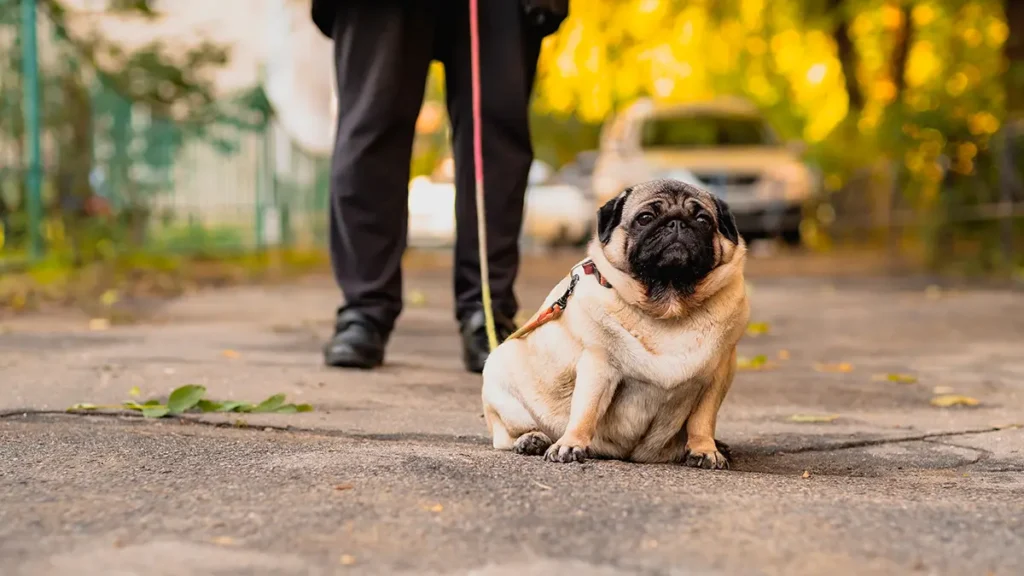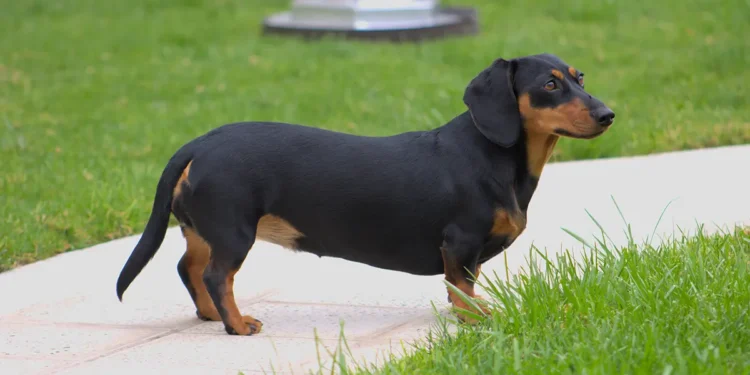Is your dog gaining weight… and it’s no longer puppy fat? This could be a sign your dog is overweight. Here are some tips to help drop your pooch’s pounds.
UK pet obesity is a growing concern, yet despite 91% of dog owners weighing their pets within the last year, a significant number remain unaware of their four-legged friend’s current or ideal weight, indicating a pervasive cause of weight gain. According to a recent study, over a third of all pet dogs fall outside of the ‘healthy’ threshold, and while canine care does seem to be in the ascendancy, many of us admit we need to do more to keep our little buddy in good shape and stop our dog gaining weight.
Understand And Monitor Your Dog’s Weight Gain
This is critical for pet health and should involve regular weighing and familiarity with the Body Condition Score (BCS) – a pet’s version of the human Body Mass Index, vital for dogs that may put on weight. These are vital in assessing overall wellbeing, with the score helping to determine if your dog is gaining weight, underweight or ideal.
In case of uncertainty or concern, consult a vet, who can offer expert guidance, assist in setting weight management goals, and will track your dog’s progress, ensuring a tailored approach to its health and wellbeing.
Dog Food: Customised Diet Plans
Every dog has individual dietary needs based on age, breed and activity level, requiring a tailored diet plan. It’s important to factor in these aspects to ensure your pet receives the correct balance of nutrients and to avoid causing weight gain through dietary imbalances. Treats, while enjoyable, should be limited to no more than 10% of their total daily calorie intake to avoid excessive calorie consumption and cause weight gain.
Overfeeding can be a significant contributor to weight gain, therefore it’s crucial to adjust the main diet to accommodate any treats given to prevent obesity in dogs. This balance helps maintain a healthy weight and prevents obesity-related health issues.

Regular Exercise: Help Your Dog Lose Weight
It sounds so obvious, but exercise plays a crucial role in a dog’s weight management and overall health, indicating the key role of diet and exercise in preventing obesity in dogs. The recommended duration of daily walks can vary significantly depending on breed, age, and health condition, typically ranging from 30 minutes to two hours, as part of an effective diet and exercise program. Regular, consistent exercise is key to promoting weight loss and maintaining a healthy weight.
Additionally, it greatly benefits the dog’s cardiovascular health and mental wellbeing, reduces the risk of obesity-related health issues and enhances their mood and behaviour. This routine contributes to a more balanced and healthier lifestyle for your pet, preventing issues such as obesity in dogs.
Set Realistic Goals And Routines To Control Weight Gain
Establishing a methodical routine for weight loss is vital for dogs carrying extra pounds, involving both diet and exercise. Aiming for a safe reduction of about 1-2% of their body weight each week is advised as part of a weight loss plan. This steady method fosters both successful and lasting weight loss, preventing unwanted weight gain in dogs.
Frequent veterinary appointments are key in this process to prevent and manage obesity in dogs. Expertise in monitoring progress, tweaking the weight loss strategy, and offering nutritional and physical activity advice, is invaluable in addressing weight gain in dogs. Regular interactions and a personal approach ensure the regimen is customised for your dog’s unique requirements, taking into account age, breed and overall health condition is essential to help with your dog gaining weight problems.
Remember, every small step counts in ensuring a longer, healthier and happier life for your furry friend.










